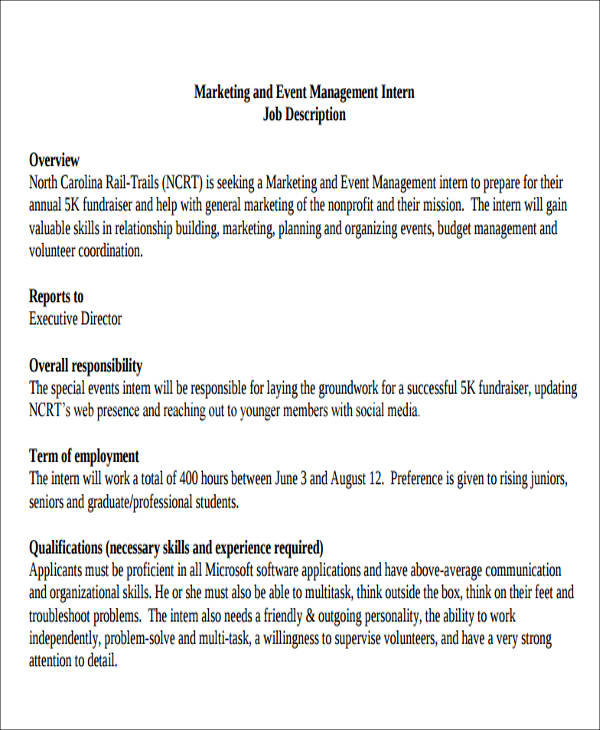

Professional bodies such as the AEO and the Society of Event Organisers (SEO) also run courses.Īreas covered include how to plan effective marketing events, sponsorship selling techniques, health and safety and risk assessment. Opportunities for training depend on your employer and may include short courses, run either in-house or externally. View more events management jobs Professional developmentĪs a new event manager, you'll typically develop your skills and knowledge by working alongside more experienced colleagues. Experience in the hospitality industry or in a sales, marketing or customer service role is also useful.įind out more about the different kinds of work experience and internships that are available. Make the most of your time at university by organising events for a student society or for charities or other organisations and clubs you have links with. Some degree courses have an optional year in industry and this can be a great way of developing relevant experience and making industry contacts. Relevant experience, either paid or voluntary, and knowledge of the industry is essential to break in to this competitive field.

It may be useful to take the Level 2 Certificate in Event Planning, although not essential. You don't need a degree to become an events manager and you can work your way up from an assistant position, gaining experience as you progress. Employers are much more interested in your skills, personal qualities and experience in the industry. Study MA International Creative Enterprise and expand your knowledge Visit QualificationsĪlthough you don't need a specific degree subject to become an event manager, a degree or HND in event management, hotel or catering management, leisure and tourism, marketing or business may be useful. You'll generally work normal office hours in the lead up to an event, but may need to work extra hours, including evenings and weekends, closer to the event. Income figures are intended as a guide only. Additional benefits, which can increase your overall salary, include performance-related pay, commission and bonuses. Salaries vary depending on your employer, location and the sector you work in.

organise facilities for car parking, traffic control, security, first aid, hospitality and the media.
Event management job description full#

liaise with sales and marketing teams to publicise and promote the event.manage and coordinate suppliers and all event logistics (for example, venue, catering, travel).research venues, suppliers and contractors, then negotiate prices and hire.produce detailed proposals for events (including timelines, venues, suppliers, legal obligations, staffing and budgets).liaise with clients to find out their exact event requirements.The role is primarily hands-on and often involves working as part of a team. You'll manage the whole process from the planning stage, right through to running the event and carrying out the post-event evaluation. Events play a huge part in the success of a brand or an organisation.Īs an event manager, you'll organise conferences, seminars and exhibitions, as well as parties and corporate incentive trips. They're responsible for running a range of events, ensuring the target audience is engaged and the message of the event is marketed properly. If you have high organisation and interpersonal skills and thrive in a fast-paced environment, consider a career as an event managerĮvent managers plan and organise promotional, business and social events.


 0 kommentar(er)
0 kommentar(er)
